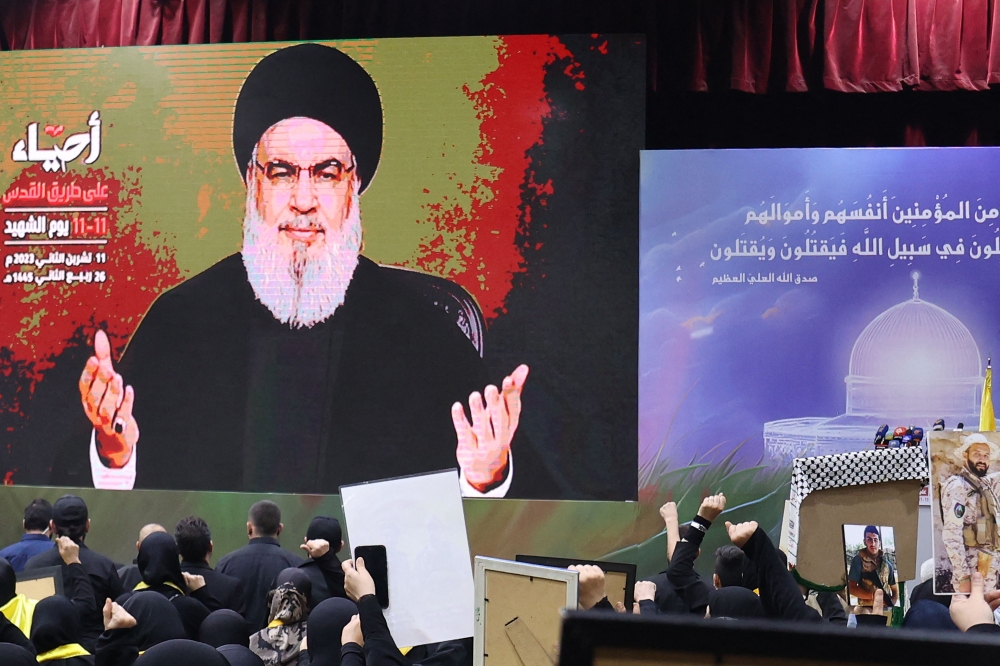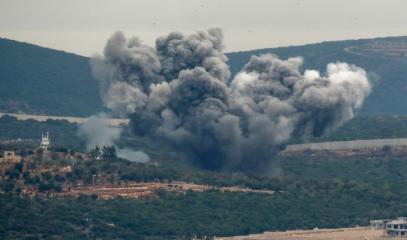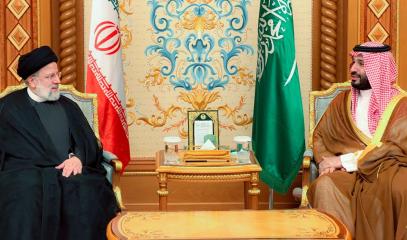Israel - Hamas war, a 'quagmire' sinking the entire Middle East
There is an opinion in Lebanese circles that Netanyahu has set his sights too high and risks becoming embroiled in the Gaza conflict. Without a ceasefire in the Strip, civilians continue to die. For Hezbollah, this is the 'war of Hamas', but the 'subtle' clash with the Israeli army remains open, flaunting the 'rules of engagement' in force in southern Lebanon. Strong divisions remain in the Arab and Islamic world.
Beirut (AsiaNews) - “If Israel doesn't win, it loses. If Hamas doesn't lose, it wins." According to retired general Elias Hanna, speaking on a Lebanese television channel, this is the equation that regulates the conflict between Hamas and Israel, which has entered its second month.
And it is also, of course, the crucial issue of the ceasefire in the Strip, which Israel continues to refuse. However, in Beirut the impression is that Israel is starting to get entangled in the Gaza quagmire, knowing that, according to American diplomat Amos Hochstein visiting Lebanon, the United States "has not given Israel an indefinite deadline" for its military operation.
By declaring that he wants to "destroy Hamas", Benjamin Netanyahu has set the bar too high, according to the common opinion circulating in the Lebanese capital. The Israeli prime minister is looking for a resounding victory to wash away the October 7 affront and his own mistakes, but this seems like a difficult target to reach.
To date, the Israeli army has not scored any decisive points against Hamas, having not captured even a single prisoner among the ranks of the al-Qassam or Islamic Jihad brigades, nor identified the exact location within the tunnel network where the approximately 200 hostages in the hands of the extremist group would be kept.
Meanwhile, according to experts, a "subtle" conflict is underway on the northern front of Israel. In a new speech delivered last November 11 on the occasion of "Martyr's Day", Hezbollah Secretary General Hassan Nasrallah reiterated that the Lebanese-Israeli side is "a support front" and cannot replace the ongoing conflict in Gaza.
“This is Hamas' war, not Hezbollah's. Hamas took the lead in the October 7 offensive without notifying us" is the common opinion in the upper echelons of the pro-Iranian Shiite movement, as underlined by journalist and expert Scarlett Haddad.
These tacit reassurances calmed the concerns of the Lebanese. But the threat of a widening of the conflict has not been completely ruled out and remains real. In fact, "for Hezbollah, as for Tehran, there are still red lines that cannot be crossed: the destruction of Hamas or a large-scale operation in Lebanon", adds Scarlett Haddad.
In the meantime, the Shiite party is playing skillfully, albeit at an exorbitant human cost, with the “rules of engagement" in force in southern Lebanon. Far from being a sham or little more than a simple skirmish, the conflict on Israel's northern border has already cost Hezbollah 68 fighters , half of those lost in the 2006 war.
Over the weekend, Hassan Nasrallah announced "a strengthening of the resistance's action on the Lebanese front, in terms of the number of operations, the number of targets and also the weapons used". Hezbollah used Katyusha rockets to bomb barracks in Dovev and Safad and Kiryat Shmona, wounding 15 people, in response to the deaths of civilians - a woman and her three granddaughters - in a drone attack.
Divergences in the Arab world
How long will the game of massacre in Gaza continue? The answer is certainly not in the hands of the Arab-Islamic world, which also marked the first official meeting between Iranian President Ebrahim Raisi and Saudi Crown Prince Mohammad bin Salman.
Looking at "realpolitik", the results of the joint summit of the Arab League and the Organization of Islamic Cooperation (OIC), held in Riyadh on 11 November, highlighted the strong regional divisions on how to respond to the conflict.
While condemning the "barbaric" actions of Israeli forces in Gaza, the summit did not establish truly dissuasive economic and political sanctions against Israel and its allies, such as severing economic and diplomatic ties or cutting oil supplies.
The summit's final communique rejected Israel's arguments that it was acting in "self-defense" and called for the UN Security Council to adopt a "binding" resolution to end the "aggression" in Gaza.
The note also rejected any future political solution to the conflict that would keep the Strip separate from the Israeli-occupied West Bank. For his part, the outgoing Lebanese Prime Minister, Nagib Mikati, stated that Lebanon's choice is dedicated "to peace".
Calmed by Hezbollah's measured military commitment against Israel, the interim prime minister even praised the "national role" played by the party, a concession to civil peace and a semblance of internal unity in the face of the enemy.










.png)










